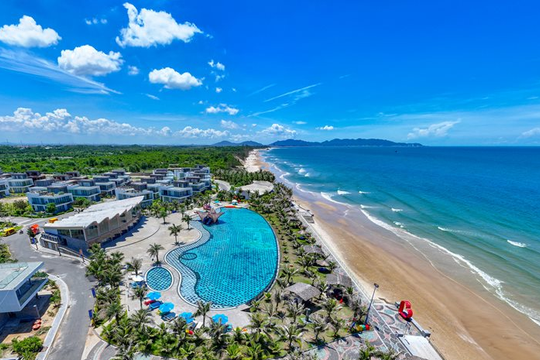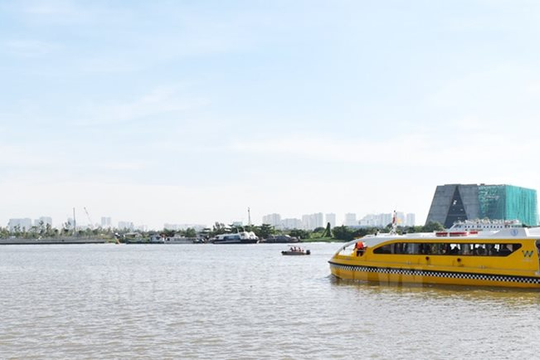(Vietnam Logistics Review) With scientific- technological progress and advanced technology and with the situation Vietnam has been integrating to the world economy, cooperation in form of merge& acquisition (M&A) among local and foreign business is a trend and will be more frequent.
A trend of M&A appeared and has developed since 2015 in the global logistics. However, at the moment in Vietnam, foreign enterprises were limited in capital possession ration in joint-stock company, therefore, their best choice was to enter Vietnam’s markets in forms of JV or strategic cooperation.

There have been cooperation among world leading logistics corps as FedEx of DHL with small local enterprises. Today, with scientific- technology progress and with the situation Vietnam has been integrating to the world economy, cooperation among local enterprises and foreign ones will be more frequent as ever.
Trends and driving forces of M&A activities in logistics sector.
Competition Pressure
With fast scientific - technological fast progress under the influence of Industry 4.0 and in the situation of integration to the world economy, Vietnam enterprises have been under harsh pressure. Estimatedly, Vietnam has 1,300 enterprises operating in the field of logistics; 3% of them is foreign ones as DHL, Maersk Logistics… but they are holding 70%-80% of the market share. Vietnam enterprise, with weak financial potentials, not enough experience and not very qualified management skills, outdated information facilities, have not been able to deal with “big bosses” in the field. Their choice: either to cooperate with big ones or to be “eaten by big ones” as little fish right in their market. Therefore, with the trend that global logistics are shifting its focus on developing market in Asia, with the moving of manufacturing corps, and with the emerging of Asian retail markets, it is the weakness of Vietnam’s enterprises that makes it a rich soil for M&A activities.

Besides, strong developments of industry 4.0 have expanded competition concepts. Breakthroughs in Industry 4.0 in the field of artificial intelligent (AI), robot, 3D printing, nano technology, biotechnology have resulted in changes in traditional logistics activities. Another new manufacturing method has developed, based on the invention of 3D printing. Customers can receive their products right at their own home without any traditional shipping, which in total reduces the need of shipping. To compensate the damage, logistics service providers will have experiments on new method of business: developing 3D printing centers, offering 3D printing ability at customers’ websites, or offering 3D blueprints. In some cases, logistics service providers will become competitors to some of their customers’, mostly manufacturing ones. On the contrary, manufactures can take part in logistics market in the time of Industry 4.0. In the time of quick scientific- technological progress, logistics activities need warehouses with robots, UAVs and self-serving warehouses.
Logistics providers have no ability to invest in these facilities or their staff do not have enough skills to operate these properties. Technology manufacturers are able to provide logistics services thanks to their technological advantages.
Developments of e-commerce
According to many economists, the birth of Amazon 10 years ago has changed the face of logistics sector tremendously. With stronger digitalized economy and higher needs of e-commerce, customers’ requirements have become stricter, even from enterprise customers or individuals. They all require faster, more active, more transparent deliveries, but at lower prices. Thus, it is not surprising that higher pressures on income targets and on business models of logistics enterprises’, which make themselves keep improving. For example, in 2007, consumers was willing to wait for a parcel sent by post in 48 hours; today, the time has shortened to 24 hours only. Higher requirements in e-commerce in the time of Industry 4.0 have assigned 4 requirements for logistics sectors: (1) optimizing the road (2) diversifying forwarding forms (3) developing drivers’ tracking and assisting technology (4) confirming delivery completion. It is obvious that customers of online selling websites often check their parcel’s positions.

Fast and economical delivery is a difficult matter for most logistics enterprises, which requires investments in technology, management improvements, and human resource improvements. It is also a difficult work to Vietnam logistics enterprises with limited potentials. Cooperation with a large, experienced multi-national corporation is a must-do.
Requirement of using input resources efficiently
In a position of large enterprises, by M&A with small and medium-sized enterprises, foreign ones can make good use of existing networks, customer sources and experience of local operation, which save their expenses. Particularly, foreign enterprises have advantages in capitals, technology, high-qualified human resource and service sources from their cross- country mother companies in cargo, sea transport… They can hire services from local ones as forwarding, warehousing, stevedoring, port, and customs brokerage… Vietnam enterprises have experience and understanding of how to operate in local markets. They sometimes have necessary facilities as seaports, warehouses, ICDs, transport and stevedoring equipment… To Vietnam’s enterprises, M&A offers great capital sources and chances of technology and management skill transfers.
M&A situation in the logistics sector
There have been more corps joining Vietnam logistics market through form of M&A as DHL Supply Chain, Maersk Logistics, APL Logistics, Nippon Express, Expeditors, Panalpina, Agility, DHL, Global Forwarding, DGF…
Another good example is the case of M&A between Samsung SDS and Aviation Logistics Service (ALS). In the situation of Vietnam emerging as a new manufacturing center with low labor cost, good foreign investment attractions and good grow potentials, Samsung SDS predicted the growth of logistics activities in Vietnam market was around 15%-20% pa, promising high benefits, it decided to enter Vietnam cargo shipping market by JV with ALS for offering integrated logistics services, including local and international shipping, warehousing services and customs brokerage… Besides, ALS provides local customer networks and finds more customers.
Statistics shows in the third quarter of 2017, M&A in worldwide transport and logistics sectors has grown fast. In the quarter, there were 71 cases of M&A with the total value of USD 43.3bn, the second largest record in quarter in the past 3 years. Also in the third quarter of 2017, 5 of the 10 largest M&A in 2017 happened |
Besides, M&A activities have been a driving force for developments of local logistics enterprises. For example, Japanese liners are interested in developing deepwater containers terminal in Vietnam, both in terms of investments and exploitations. MOL has had investments in the both two largest deep-water ports in Vietnam: Cai Mep- Thi Vai and Lach Huyen, Hai Phong. Saigon Newport has cooperated with NYK and Mitsubishi to carry out exploitation in ODA-funded container terminal in Cai Mep- Thi Vai. The interest in Cai Mep- Thi Vai from MOL and NYK proved they appreciate the role of the port group and want to exploit them at the highest commitments.
Therefore, enterprises worldwide and in Vietnam in particular are having to face remarkable changes in business situation, especially in the time of Industry 4.0. To avoid direct confrontations in term of price, to exist and to operate in efficiency, M&A will be unavoidable trend to Vietnam’s logistics enterprises.




.jpg)
.jpg)
.jpg)









.jpg)